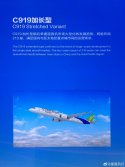Could you specify which project these Russians got their experience and key knowledge from?Too bad. I wonder if COMAC can hire some experienced Russians to do R&D. You never know what key knowledge open may bring.
Just assume a Russian who graduated from university at age of 22 and jointed the Il-86 team in 1976, when the first flight took place. He is 22+(2024-1976)=70 years old by now;
If he jointed the Il-96 project in 1988, when the first flight of Il-96 took place, he is 22+(2024-1988)=58 years old now, almost has reached the age of retirement.
By the way, if he only jointed the team in 1988, he probably hasn't many experience and key knowledge on R&D of widebody airliner at all since the major R&D work had been done before the first flight.
I'm sure China hired many experienced former Soviet engineers back in 1990s and early 2000s. But now they have already reached the age of retirement even if they are still in China. Even back in 1990s, I don't think a 20 years old Russian engineer could get a job in China since "an experienced engineer" means the person should have been working on a certain field for at least 10 years to gain the experience, so he is supposed to be at least 30-40 years old, not a newbie who has just graduated from university.
Russians are also humans not Goa'uld, the fabricated alien race in American Sci-Fi TV series Stargate who can pass their knowledge from one generation to another by gene. The young generation of Russian engineers haven't any significant experience and key knowledge on widebody airliner R&D since there isn't a project for them to gain these experience and knowledge after the dissolution of the Soviet Union. Ironically, CR-929 probably is the only chance for them to gain the experience and knowledge on advanced widebody airliner design from. Now they have to burry their heads in piles of old Soviet aircraft blueprints and refurbish them to meet mother Russia's urgent need of self-sufficiency.


